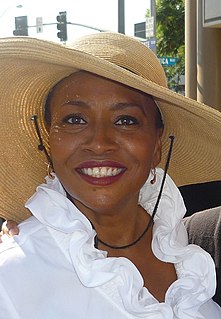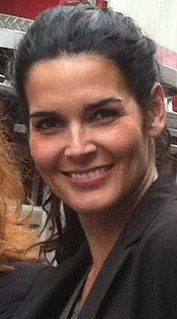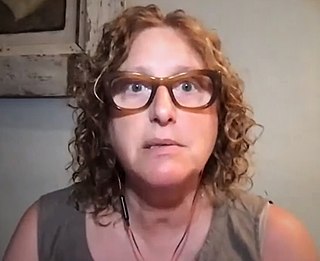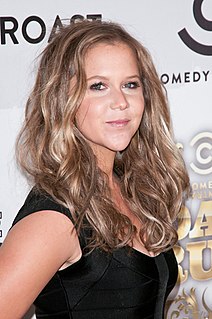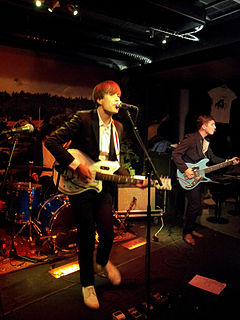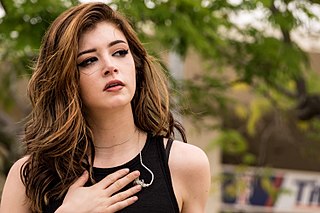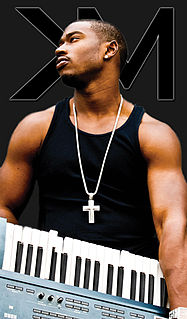A Quote by Jenifer Lewis
I wrote a show - just as a joke, actually - and called it 'Bipolar, Bath, & Beyond,' just to bring some humor to it. I wasn't saying to myself that I'll 'come out' with it - I didn't think there was anything to 'come out' with - I was just writing another one-woman show about my life.
Related Quotes
Bruce McGill and Sasha Alexander are regulars on the show. That shows that it's not just a typical procedural show. We have these actors because they can come in and actually act, and show the different colors of actual people. No person is just one color. No person is just who they are at their job, 24/7. That was really what I was excited about.
Think about Kennedy. Think about Carter. Think about Clinton. Think about Obama. They've all been in their forties and from outside Washington, or underdogs in one way or another. I just think that Americans are looking everywhere, saying, 'Hey, show me some authenticity. Show me somebody who's practical. Show me people who run things.'
Some street jokes are just timeless. There's an old street joke about comedians. The joke is that a beautiful girl comes up to a comedian at the end of the night and says, "I saw your show tonight, and I just loved it. I want to go home with you, and I'll do anything you want." And the comedian says, "Were you at the 7 or the 9?" That's just a perfect joke, because it points out how egomaniacal and obsessive comedians are. Even though I'm not waiting for a groupie, I can completely understand it. It just defines how comedians are driven.
It [the memoir "In The Body of the World"] wrote me. I joke about it, but this book was so unusual. It just started to come out. I really feel like it came straight from my body. I think it was both an expression of what I had gone through, but also it just felt like everything had come together in my body and it needed to tell that story.
Sometimes, you've got to be in a place. You're just another guy. You can just blend in. I live out in the wilds of nowhere, out in Jersey. Even there, there's sometimes problems. College students like journey out there and show up at 11 o'clock at night, on my porch, looking into the door not saying anything. My wife and I are sitting there; it's really creepy.
I still think of myself as a newspaper guy and you live by deadlines in the newspaper world, so, they don't really give you any excuses. At the paper they never say, "Well, we just won't have Tuesday's paper come out, we'll just bring Tuesday's paper out on Wednesday, so go ahead, take all the time you need." They come out with that paper regardless.
You know what I think the guy who reviewed the live show for Pitchfork suffers from? Shy/asshole confusion. I'm not an asshole. I don't think I have to prove that to anyone, but I'm just putting that out there. I just think people should know that I'm not trying too hard. I think some people are just bitter that they ended up reviewing the show rather than playing the show, perhaps.
I think that ties into our name and the meaning behind our name, going Against the Current. We don't really want to fit in to one section. If we're able to be grouped into one category then we've become something that already exists, probably. We want all of those kids that would come out to that pizza shop to come to our show and all of those kids who know us from the radio to come to that show. We have kids that come to our show that have been coming to concerts for years, and ones that it's their first concert and they just wanted to see it. I think that's the best way to do it.
I did a show in Germany, and some kid - he was disabled - he was actually in a wheelchair, and he came out to my show, and he couldn't get across to me what he was trying to say, and you could see that he was frustrated because he couldn't fully express himself, and I just felt like, 'Wow, he's just really passionate about me.'
I think my first hit was the first song I ever wrote. I actually wrote it in 2005 in college. The title of it is called "Ain't Ready”. It's just talkin about the relationship with a man and a woman, or even a woman and a woman; however you wanna look at it, and just that feeling of feeling like you're not ready for love and the other person is pushing for something that you don't want. I think that's something that a lot of people can relate to.
Joyous Sound evolved from a gospel influence. Actually it evolved out of sitting at a piano and just picking out a riff, a gospel type riff. It just seemed to come joyously-something about the song, about living in another place of joyous sounds. I'm not quite sure-that's one I'm trying to analyze. It just came out.
America's a funny place. Every time I've come over it just feels absolutely gigantic and massive. I've always had good shows there, but I just go and come back, feeling like another singer/songwriter in a sea of thousands of singer/songwriters. I don't really know what "breaking it in America" is or means. I just focus on touring day-by-day, and show-by-show, and see where it goes.
In old interviews I was still worried about being judged. I think my life was about how can I keep myself in control. How can I just get through this and be okay? And, you know, you turn the corner. You realize that you're not imprisoned by your life or your circumstances or your genetics or anything. I really believe that we all have the ability to come out of our story. But you have to tell your story first in order to come out of it.
